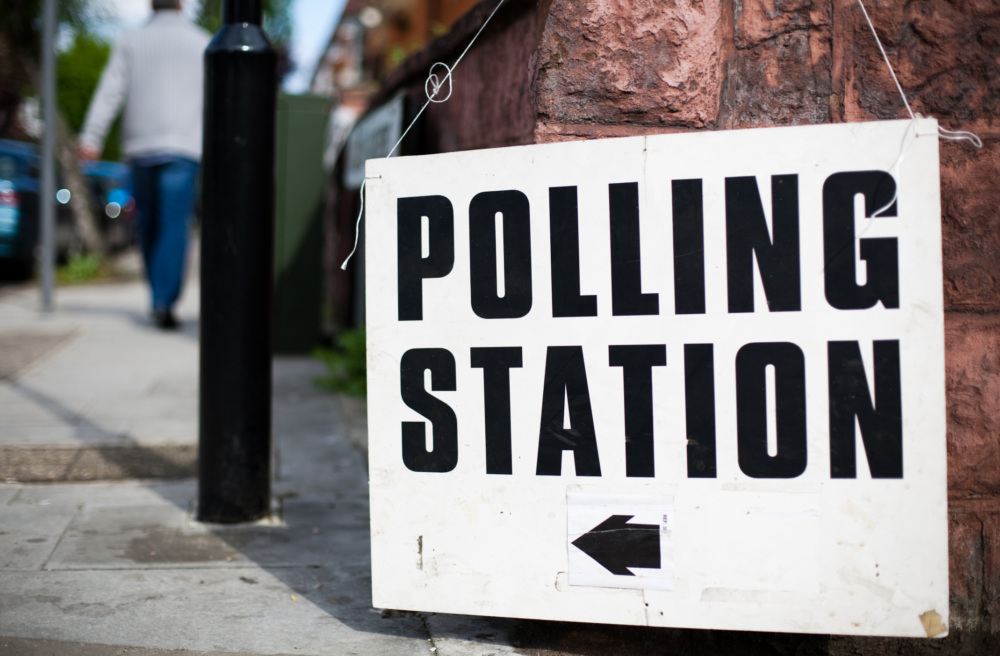Voting Rights Advocates Issue Statement on Policing at Polling Sites
Media Inquiries
Contact Jennifer Dillon Managing Director of Communications
jdillon@advancementproject.org
Contact Jennifer Dillon Managing Director of Communications
jdillon@advancementproject.orgNovember 1, 2024
This morning, Advancement Project, The Frontline, NAACP issued the following statement about policing at polling sites.
###
As voters cast their ballots in-person between now and Election Day, the issue of law enforcement presence at polling places raises age-old concerns around voter intimidation, specifically for communities of color. This concern is rooted in a well-documented history of police violence and retaliation against Black voters in the South and continuing concerns about police brutality. Today, certain localities are faced with questions of how to protect poll workers from potential threats of violence while balancing concerns about intimidation felt by voters who will encounter the same officers who over-police their communities when going to cast their vote. Some states, like Florida [1] require police presence at polling locations, while others like Georgia [2], do not. In 2022, New Jersey passed a law banning police officers from lingering around polling stations and drop boxes, requiring both uniformed and plain-clothed officers to remain at least 100 feet away [3].
The undersigned organizations recommend that unless police are legally required under state law to be at a polling place, they should not be present to avoid potential voter intimidation and other harms that accompany such police presence.
The justifiable fear and anxiety that marks police interactions for Black people extends beyond the criminal legal context, as law enforcement has historically been used to intimidate Black voters at the polls. Back in 1981, not even twenty years after the passing of the Voting Rights Act, the Republican National Convention established the “Ballot Security Task Force”, made up of police officers, whose stated mission was to “prevent voter fraud and secure the election” [4]. These officers, some uniformed, others plain-clothed, were armed and hung up signs at polling locations that read, “Warning: This area is being patrolled by the National Ballot Security Task Force. It is a crime to falsify a ballot or to violate election laws.” [5] Citizens with outstanding warrants, unpaid traffic tickets, or outstanding child support payments fearing arrest were told to stay away from the polls [6]. For those who did show up, their eligibility was challenged as they sought to enter the voting booths [7]. This case prompted a $10 million federal lawsuit by Democrats against the RNC and a federal court order that restricted these so-called “ballot security” efforts, which expired in 2017.
Today, Donald Trump has urged police to play this same role: intimidate voters as they search for voter fraud. As he gained the endorsement of the Fraternal Order of Police, the country’s largest police union, Trump said: I hope you as the greatest people … watch for voter fraud,” he said. “I hope you can watch and you’re all over the place. Watch for the voter fraud. Because we win. Without voter fraud, we win so easily. Hopefully, we’re going to win anyway. But we want to keep it down. You can keep it down just by watching. Because believe it or not, they’re afraid of that badge. They’re afraid of you people.” [8]
To many in the Black community, the sight of a police officer, no matter the context can evoke feelings of fear and intimidation, regardless of the intention officers may have while at a polling location. The reality is that their presence has the historical and present effect, especially given today’s political climate, of making individuals feel unsafe which may have a chilling effect on voter turnout. Furthermore, while we understand concerns about political violence, including towards poll workers, the relationship between communities of color and the police, sowed from generations of violence and retaliation at the hands of the police and other state actors, requires us to reckon with the question of who the police are here to protect and serve. We need not look very far for the answer. The Fraternal Order of Police (FOP), the oldest and largest police union in the U.S., has endorsed Trump for the third election in a row, as have two other national police unions and several state and local ones. Additionally, there is a fast-growing body of evidence that “demonstrates the pervasiveness of white supremacy in U.S. law enforcement, and a continuing series of incidents documenting the presence of extremist groups and views among law enforcement.” [9] The FBI warned about “white supremacist infiltration of law enforcement” as early as 2006, and the research suggests that this problem is only getting worse.
For these reasons, we offer the following recommendations: [10]
We continue to work tirelessly to protect the right to vote ensuring free, fair and accessible elections and to make good on America’s promise of fair and inclusive representation.
Signed,
Advancement Project
The Frontline
NAACP
[1] Fla. Stat. § 102.031(2) (2024).
[2] Ga. Code Ann. §§ 21-2-1 –21-5-76 (2023).
[3] N.J. Stat. Ann. § 19:6-15 (West 2022).
[4] NJ.Com, N.J. bans police at polling stations in new law advocates say prevents voter intimidation, https://www.nj.com/politics/2022/01/nj-bans-police-at-polling-stations-in-new-law-advocates-say-prevents-voter-intimidation.html (last accessed Oct. 31, 2024).
[5] Matt Katz, Armed Men Once Patrolled the Polls. Will They Reappear in November?, https://www.wnyc.org/story/armed-men-once-patrolled-polls-will-they-reappear-november/ (last accessed Oct. 31, 2024).
[6] Id.
[7] Id.
[8] https://apnews.com/article/trump-police-crime-law-enforcement-de5662eb889fb5dd75a893e1871b3400
[9] See Hasan Kanu, Prevalence of White Supremacists in Law Enforcement Demands Drastic Change, Reuters, for examples of academic research, government audits, and news reporting about this growing problem, https://www.reuters.com/legal/government/prevalence-white-supremacists-law-enforcement-demands-drastic-change-2022-05-12/ (last accessed Oct. 31, 2024).
[10] Nothing in these recommendations shall be interpreted to prohibit a police officer from traveling to and from, or remaining within, their personal residence if that residence is within 100 feet of a polling place nor from voting in a personal capacity.